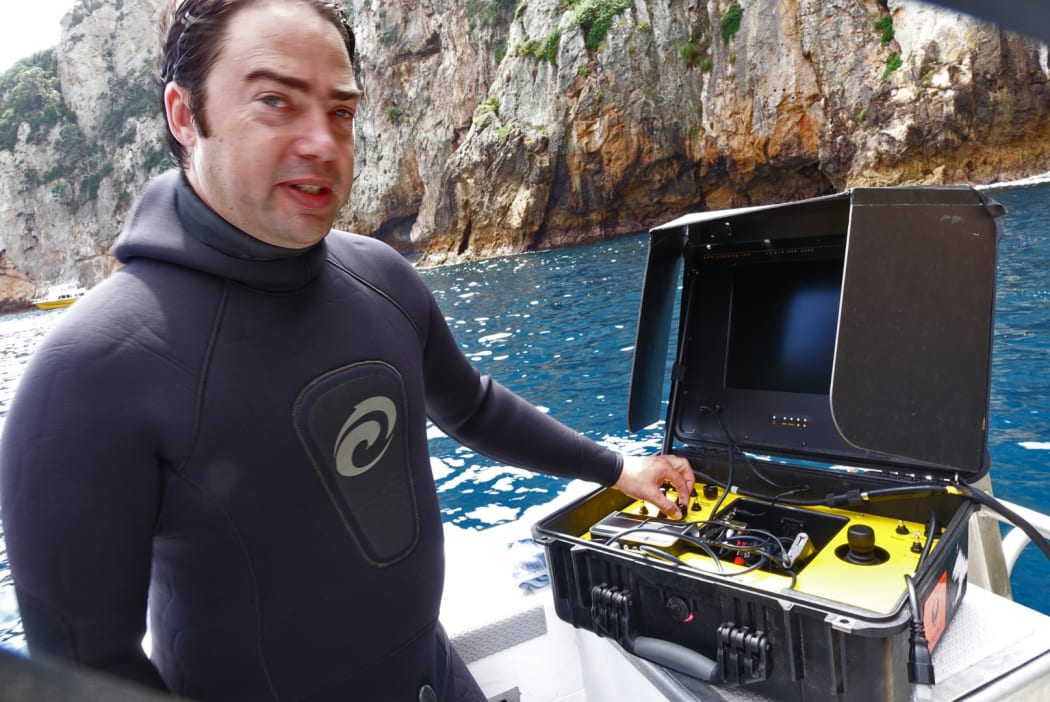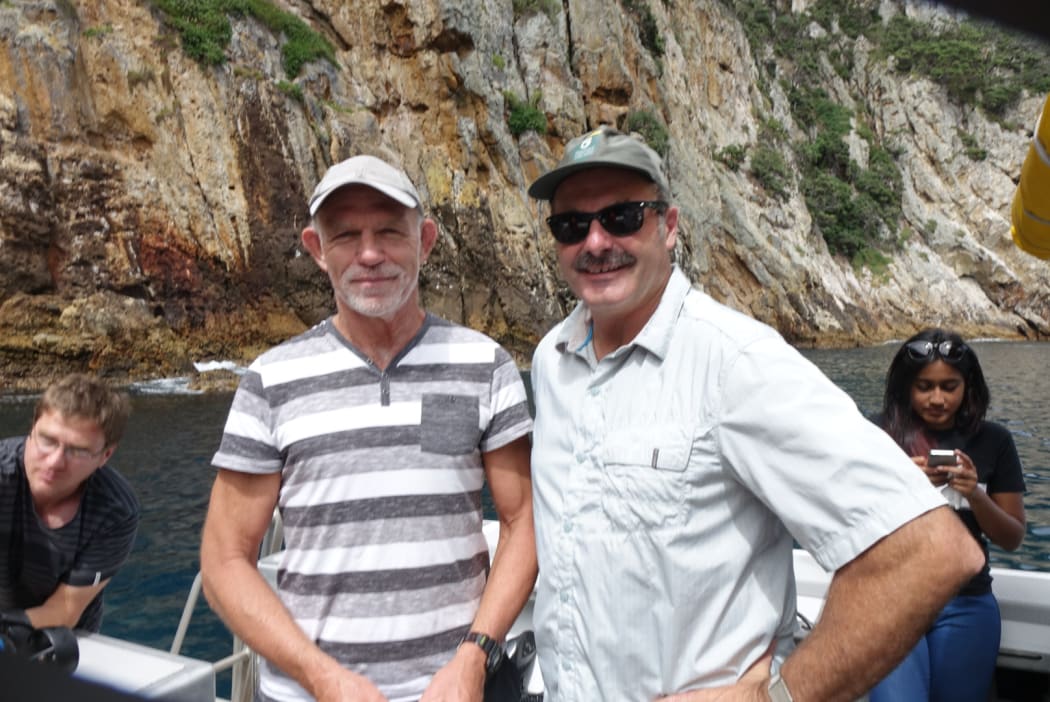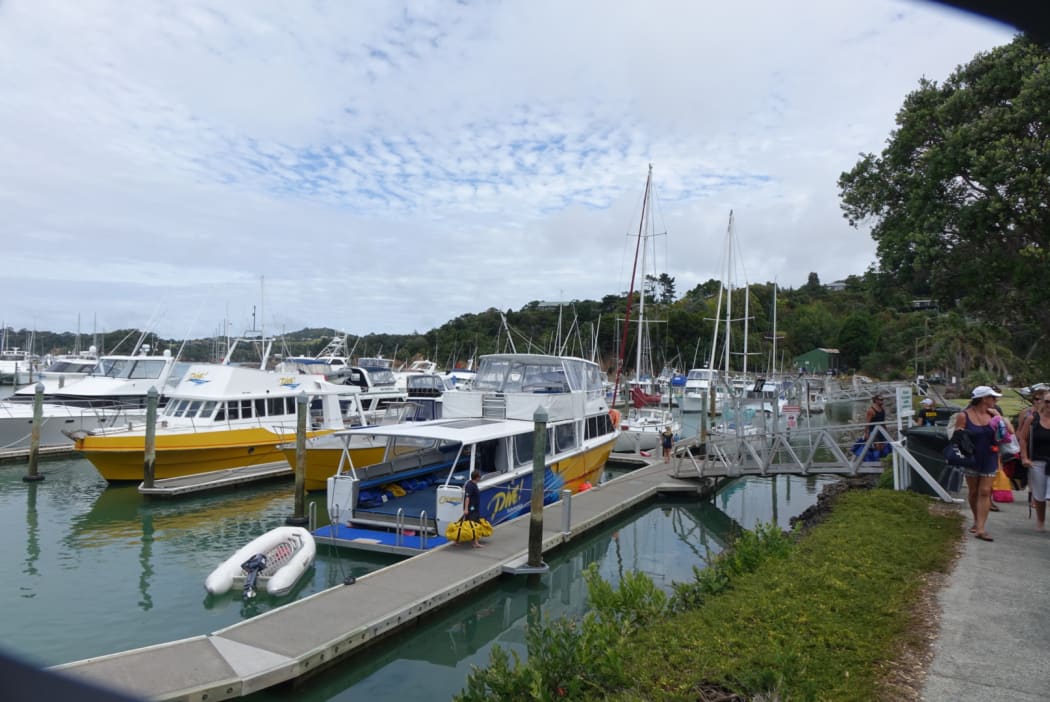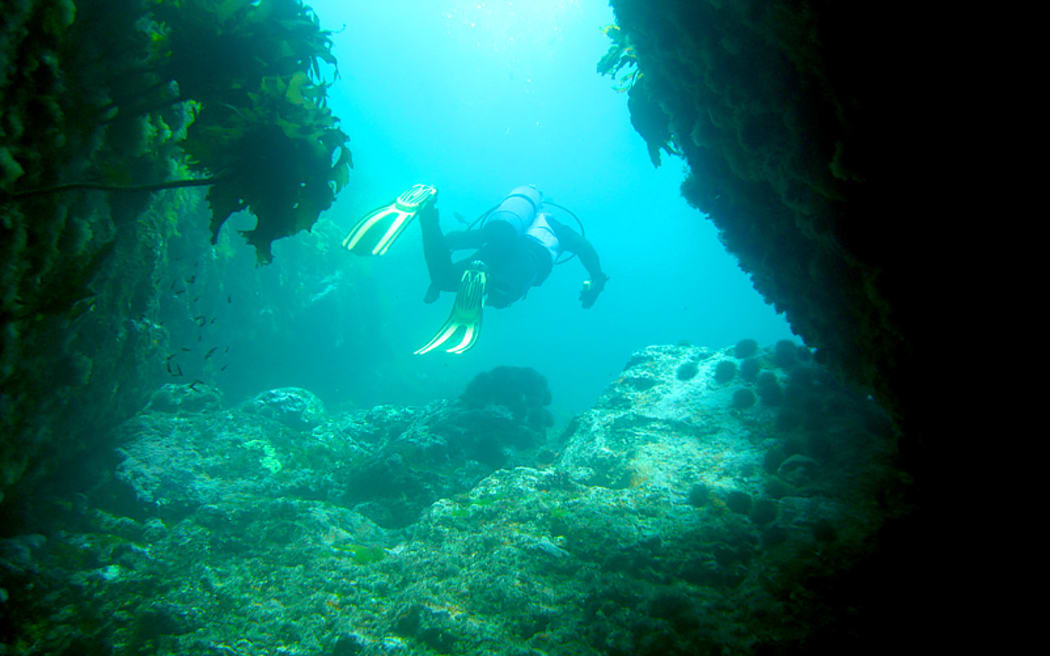Scientists have begun a two-week survey of fish life at the Poor Knights Islands and are on the lookout for a new and unwelcome species brought south by climate change.
The islands off Northland's east coast, famously rated one of the world's top ten dive spots by Jacques Cousteau, have been a fully protected marine reserve since 1998.
Although scientific research is one of the statutory purposes of marine reserves, it has been 10 years since the Department of Conservation (DOC) last did a survey at the Poor Knights.

DOC scientist Sean Cooper at Poor Knights Islands Photo: RNZ / Lois Williams
The divers, from DOC and Auckland University, are keeping a sharp eye out for sea creatures new to New Zealand waters.
DOC's Director General, Lou Sanson, said with climate change, the east Australian current was moving south and one species it had brought with it was a black sea urchin that had annihilated giant kelp beds in Tasmania.
He said it was present and apparently on the increase at the Poor Knights.
"We don't think it's as significant as in Tasmania, but certainly when it happened in Tasmania it happened very quickly, over ten to fifteen years.
"It came down with the east Australian current, and we know that's moving across and hitting Fiordland, Stewart Island, Otago. We're not seeing a warming sea temperature up here, but it is happening further south. So this work we are doing sits in a global perspective of what's happening to our oceans, and what indicators are there ... that we need to understand."
Mr Sanson said the voracious black sea urchin met its match in one place in Tasmania - and that was a marine reserve, the only area where its natural predators, including lobster, still flourish in sufficient numbers to control it.

DOC chief science advisor Ken Hughey and DOC director general Lou Sanson at Poor Knights Islands. Photo: RNZ / Lois Williams
DOC's research this summer was made possible by funding from Air New Zealand as part of a $7 million partnership deal.
The department's chief science advisor, Ken Hughey said research had been carried out around New Zealand's 34 marine reserves in recent years, but had until now been piecemeal.
The Air New Zealand funding had made possible a more systematic approach.
"Now what we are trying to do as a department is get the whole country covered in terms of the marine reserves that we have, and we can report consistently and we can compare what's going on at the Poor Knights with what's going on at Leigh, and in other parts of the country as well."

Dive boats at Tutukaka marina. A number of successful businesses have sprung up based on visitors to Poor Knights Islands. Photo: RNZ / Lois Williams
Mr Sanson hoped the partnership with Air New Zealand would do for marine reserves what it had done for the Great Walks.
The airline's promotion increased visitors on the walks by 8 percent in its first year.
Mr Sanson said public appreciation for the marine environment, and hunger to know more about it, was growing by the year and the TV programme Our Big Blue Backyard had caused a further surge in interest.
Already, the number of people visiting the Poor Knights was double the number walking the Milford Track, and boosting the tourism profile of New Zealand's great dives - great snorkels, and great paddles should be easily achievable.
When the Poor Knights were first fully protected 19 years ago many fishermen were angry at the move, he said.
But the reserve had boosted not just fish numbers but the Northland economy.
Since the marine reserve was created several businesses have started up based on the dive and visitor trade, including the award-winning Dive Tutukaka, generating employment for about 100 people.

A diver at Poor Knights Island marine reserve. Photo: SUPPLIED / Danica Stent, DOC

